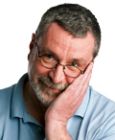Career
The 50th Anniversary of the Peace Corps
The Peace Corps represents service writ large, very large.
Posted October 14, 2010
All this will not be finished in the first one hundred days. Nor will it be finished in the first one thousand days; nor in the life of this Administration; nor even perhaps in our lifetime on this planet. But let us begin.
- John F. Kennedy Inaugural Address (January 20, 1961)
I have previously written about the Fall 2010 Theme Semester at the University of Michigan - "What Makes Life Worth Living?" - which happily coincides with the week-long celebration by the university of the 50th anniversary of the birth of the Peace Corps, which occurred at 2:00 AM, October 14, 1960, on the steps of the Michigan Union.
What makes life worth living? My colleagues and students have discussed this question a great deal this fall, and one answer that has emerged with which most readily agree is "work, love, play, and service." The Peace Corps of course represents service writ large, very large.
Those of us at Michigan are well familiar with the beginning of the Peace Corps on our campus, but for other readers, here is the story. Scant weeks before the 1960 Presidential election, candidate John Kennedy made a brief appearance on campus and spoke to students gathered in front of the Michigan Union. For whatever reasons, Kennedy did not speak until 2:00 in the morning. Maybe the fact that the third televised debate with Richard Nixon had just taken place explained the timing. Even someone as accomplished as John Kennedy could not be in two places at the same time.
In what he called the longest brief speech of his career, Kennedy asked the five thousand students in attendance:
How many of you who are going to be doctors are willing to spend your days in Ghana? Technicians or engineers, how many of you are willing to work in the Foreign Service and spend your lives traveling around the world? On your willingness to do that, not merely to serve one year or two years in the service, but on your willingness to contribute part of your life to this country, I think will depend the answer whether a free society can compete. I think it can! And I think Americans are willing to contribute. But the effort must be far greater than we have ever made in the past.

John Kennedy - University of Michigan
He did not use the phrase "Peace Corps" during this speech, but what he said resonated with those in the crowd, so much so that many of them began a letter-writing and petition-signing campaign to Kennedy and his staff in support of his challenge. On November 1, in another speech, Kennedy dubbed the proposed organization the Peace Corps. Critics, including his opponent Richard Nixon, charged that the program would be nothing more than a haven for draft dodgers! Others said that young Americans lacked the skill, maturity, and will to do the right thing for the world. But Kennedy heeded the Michigan students and not the critics, and the Peace Corps was born.
From the vantage of history and the perspective of positive psychology, I observe that it is useful to see what's right about an idea as opposed to what might be wrong about it. Since 1961, more than 200,000 Americans have joined the Peace Corps, serving in 139 countries. At the present time, there are 3200+ Americans in the Peace Corps, including 70 University of Michigan graduates.
Among numerous events on our campus focused on the Peace Corps was a celebration outside the Michigan Union at 2:00 AM, October 14, 2010 - exactly fifty years after Kennedy's appearance. I urged my students to attend and resolved to go myself.
About 1:45 AM, I parked my car one block from the Union and walked to it. I started to worry because I heard nothing, which suggested that no one was in attendance or - horrors - that I had the day wrong.
No worries. When the Union came into my sight, so too did a crowd later estimated at 1500. It was an excited and expectant crowd, but also a quiet and polite one, as appropriate given the occasion. Most of the people there were young college students, bright-eyed and bushy-tailed. I saw lots of my own students, including a large number of my international students. I'm not always sure what international students think about the United States, but I know for sure what they were thinking at 2:00 AM, October 14, 2010. What a country!
There also were a number of senior citizens in attendance, not quite so spry as the twenty-year olds, but also with bright eyes perhaps magnified by tears of pride and joy. I assume that some of the senior citizens had been there fifty years ago, and that some of them had served in the Peace Corps themselves. To all of them I can only say, "Job well done."
What followed for the next 45 minutes or so were talks and films shown on a jumbotron, including excerpts from Kennedy's speech fifty years ago. The theme of the evening (morning?) was "passing the torch." My favorite talk was by a 73-year-old man who'd been there fifty years ago that put it all in context, reminding us that what had happened in 1960 was not simply a maize-and-blue event but rather one that flowed naturally from rising student activism in the country and the growing civil rights movement. And I learned something new to me, that in 1960, the editor of the University of Michigan student newspaper was none other than activist Tom Hayden.
It was rainy; the sound system was funky; and the sight lines were poor at best. It was a wonderful event, and I'm looking forward to the 100th anniversary.




